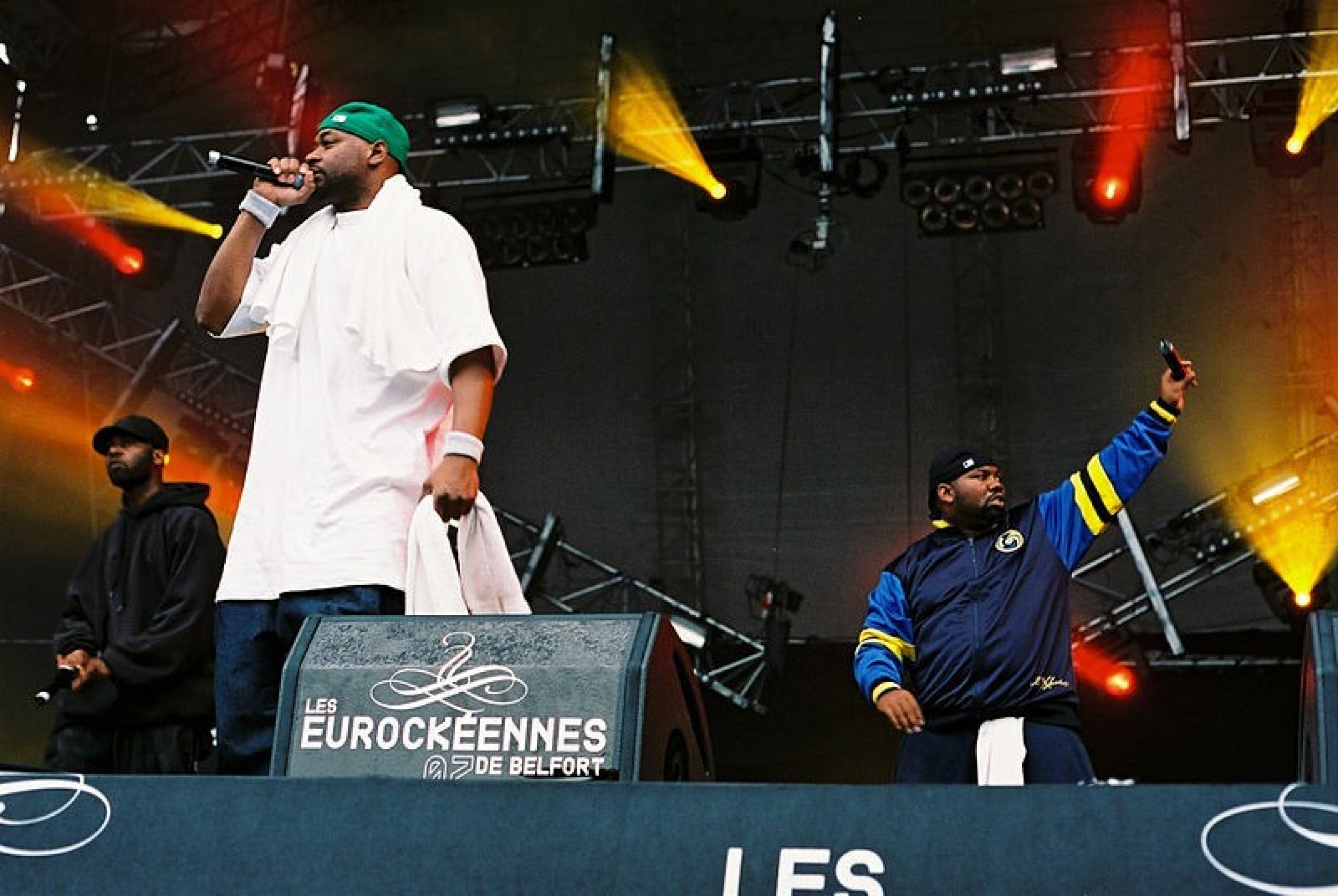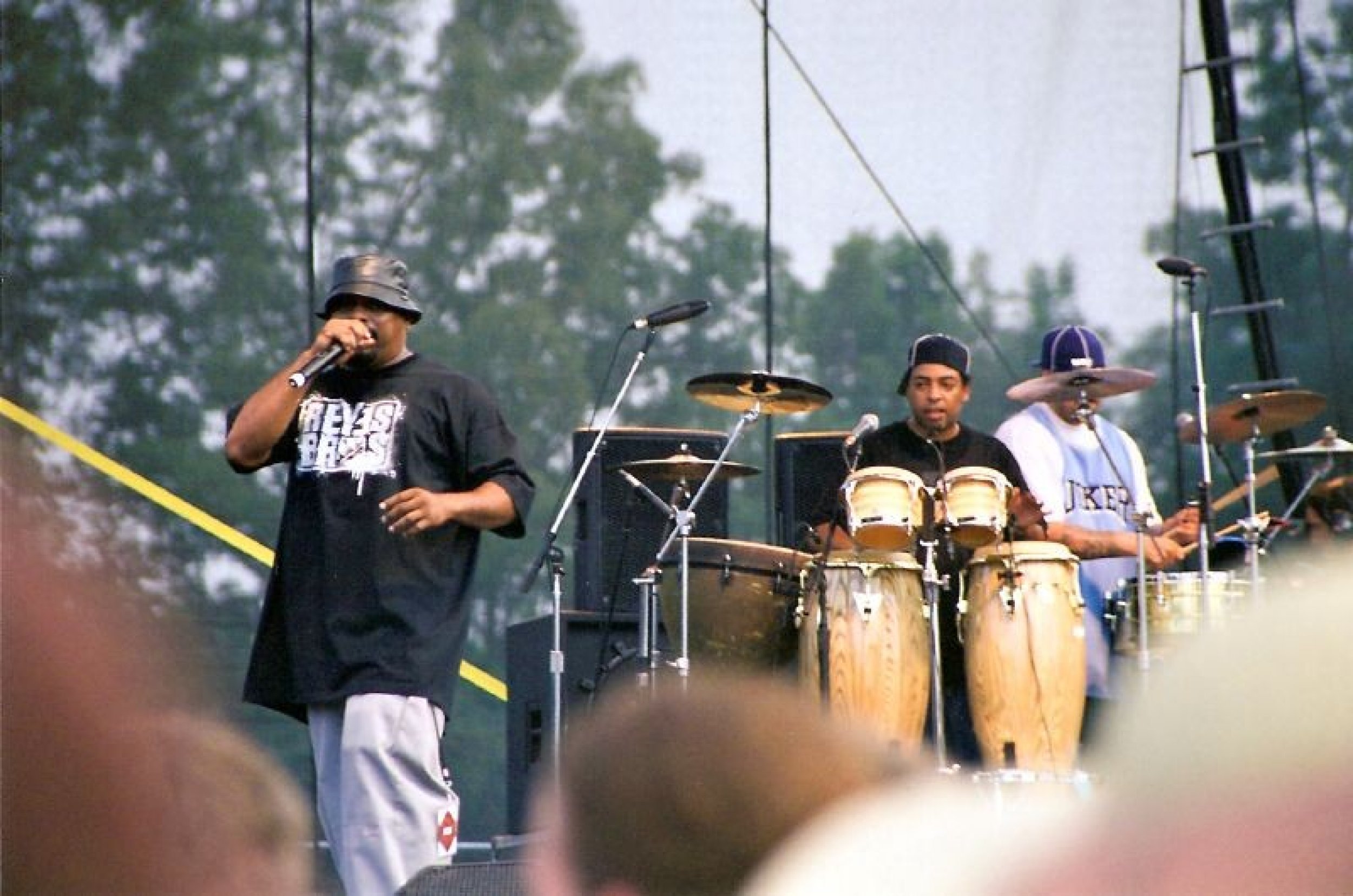Ice-T Gun Control: Rappers And Their Complicated Relationships With Firearms [PHOTOS]
Ice-T stirred up some controversy recently when, during an interview with Krishnan Guru-Murthy on Britain's Channel 4, he staunchly defended his Second Amendment right to bear arms last Friday, just hours after the infamous shooting in Aurora, Colora occurred. "It's legal in the United States," he explained in the interview. "It's part of our Constitution. You know, the right to bear arms is because that's the last form of defense against tyranny. Not to hunt. It's to protect yourself from the police." He went on to deny any perceived relation between the access to guns in the United States and the rates of violent crime in the country, arguing that, "If somebody wants to kill people, you know, they don't need a gun to do it. You can strap explosive on your body; they do that all time."
Ironically enough, for much of his career as a rapper, Ice-T was protests by pro-gun rights groups like the National Rifle Association for his controversial songs like the infamous 1996 song "Cop Killer" he wrote and performed with his band "Body Count." The aftermath of Ice-T's pro-gun pronouncement last Friday therefore led to some bizarre and humorous ideological idiosyncracies from right-wing pundits who are usually predisposed to disagree with almost everything a man like Ice-T would say. Most controversially, for instance, Rush Limbaugh offered the 54-year old rapper and actor a bizarre back-handed compliment, saying he was surprised that Ice-T "knew the word 'tyranny,' and he knows that tyranny comes from government representatives. Double impressive." Shortly thereafter, Ice-T himself responded on Twitter by calling Limbaugh "a racist piece of sh--."
It would seem like Ice-T's ideological justification for gun-ownership is very different from that of a conservative like Rush Limbaugh's. But even though the two's cultural dispositions are worlds apart, when speaking about gun rights, really the two are essentially in agreement: Ice-T's point in many of his songs is that disenfranchised black men are forced to use violence to rebel against a system of structural oppression that is violently imposed upon them—the same defense that Limbaugh himself makes in appealing to Federalist notions of self-determination when justifying second amendment rights.
The irony of Ice-T's position, however, is that he also made any number of songs that describe much less politically motivated forms of violence such as, say, domestic robbery. But this tension complicates almost all of the bravado and posturing of the entire genre of "gangster rap" that Ice-T himself helped create—Tupac makes aggressive threats in his songs almost as often as he laments the violent, anarchic state that inner-city youth find themselves in.
To show some of this tension, we consider the top ten rap songs about guns and violent crimes. Watch the slideshow above.


© Copyright IBTimes 2024. All rights reserved.






















